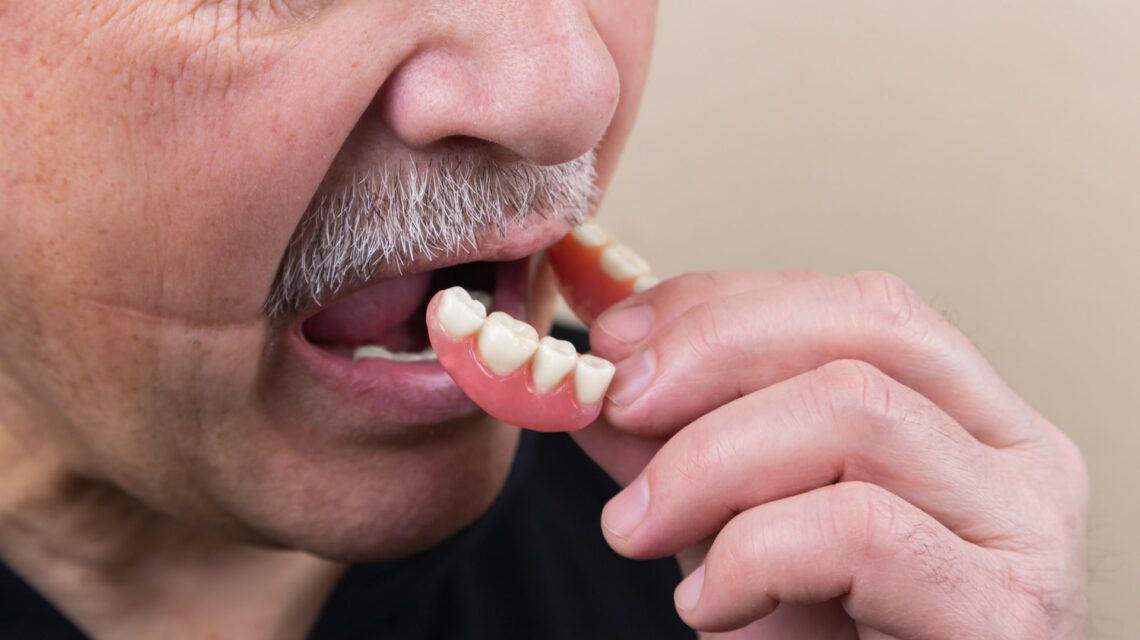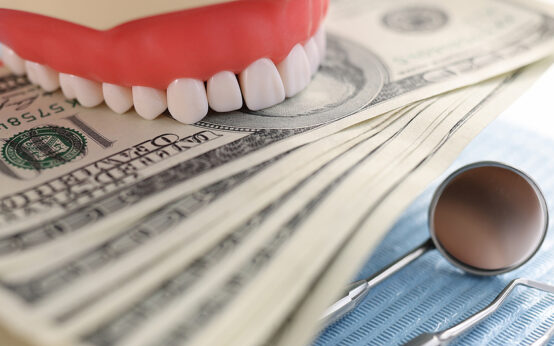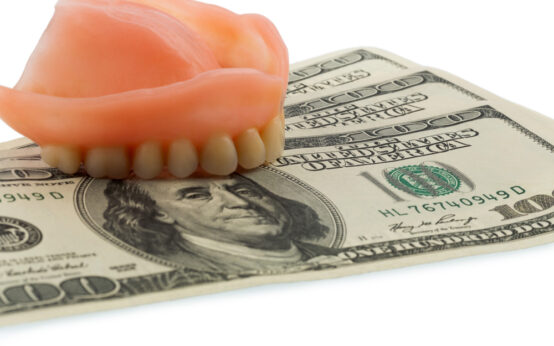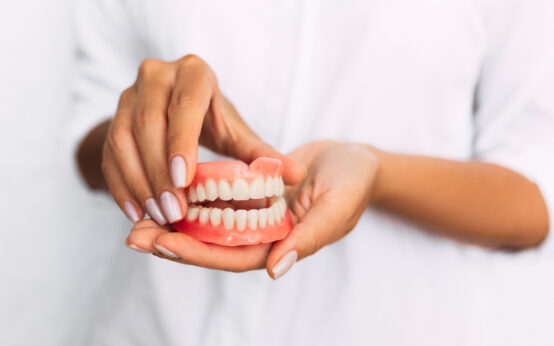There are several different types of dentures. The materials used to make dentures vary greatly, and the care and maintenance of your new dentures will vary widely as well. In this article, we'll discuss the cost of dentures, cleaning techniques, and maintenance. Getting dentures can be an exciting and empowering experience for people of all ages. Read on to find out more! Listed below are some common questions you may have about your new dentures.
Table of Contents
Materials used to make dentures
Dentures are made from a variety of different materials. Your prosthodontist will discuss the best materials for the different components of the denture before creating a final product. Typically, dentures are made of acrylic, metal, or a combination of materials. The next section describes the different materials and their uses. Some patients may require a soft liner while others do not. This article explores the different materials used in denture production and the advantages and disadvantages of each.
The majority of denture bases are made of acrylic resin. These resins are supplied as a powder or liquid that is mixed with a release agent. The mix then takes on a sandy consistency before transforming into a dough-like consistency. There are several different types of acrylic denture base material. The way they cure and their strength is important factors in the final product. Here are a few examples of the various types of denture bases.
The framework for dentures is made from metal, acrylic resin, or porcelain. This structure will hold artificial teeth and emulate the gingiva that supports natural teeth. The framework is also made of metal, including chrome cobalt. Metal frame dentures are stronger than acrylic resin ones because of the materials used to construct them. A metal frame is not as brittle as an acrylic base, so they are a good choice for people with unstable gums.
Depending on the type of denture, plastic or acrylic may be a better choice. While the acrylic resin is more durable than plastic, it lacks the durability of other materials. Acrylic is not prone to cracking and is much better suited for partial dentures that are hidden behind natural teeth. If the denture will be used as a cosmetic solution, you may want to consider a metal plate. Metal plates also give your denture a better fit.
Acrylic resin is a versatile material that can be molded into shapes and sizes. This material is a cheaper alternative to porcelain. However, it is not as sturdy as porcelain and may need to be replaced after half a decade. A metallic framework is a good option for a full denture. If you're considering acrylic dentures, consider your budget first. Acrylic resin is lightweight and easier to work with. In general, plastic teeth are lighter, but you may have to wear them for a long time.
Techniques for cleaning dentures
There are several methods of cleaning dentures. A few of the most effective methods include hydrogen peroxide, dentifrice, and a special cleaner. Hydrogen peroxide is a common household chemical that reacts with organic matter to form a foaming and penetrating agent. These solutions kill bacteria and fungus. They are most effective when used with dentifrice. Other effective methods include chlorhexidine, which is found in mouthwash and is an antibacterial and biofilm-destroying agent.
Regularly cleaning dentures is vital to preventing staining. Dentures can become stained by a variety of activities, including smoking, drinking coffee, tea, or red wine. Although regular cleaning can remove many stains, stubborn stains may require more care. Thankfully, your dentist and his team can help you with these techniques. A professional dental cleaning can also help keep your dentures fresh, and improve your hygiene. And of course, regular visits to the dentist will ensure they are functioning properly and clean as they should.
Cleaning techniques for dentures include mechanical and chemical methods. The former is based on the idea that plaque is removed by mechanical action, while the latter involves the use of chemicals like hydrogen peroxide or sodium hypochlorite. The latter is more effective, but both can damage restorative materials. A better understanding of how plaque is removed from dentures will help you improve your clinical care and usage of dentures. There is no one best method for cleaning dentures, so be sure to choose the right method based on your oral condition and circumstances.
When cleaning dentures, it is important to avoid leaving them out overnight. They are designed to be moist, so if you leave them out overnight, they could warp and twist. This can affect their fit and appearance. You should always soak your dentures in denture solution, so they can breathe. Using denture solution can also help prevent mouth sores. The moisture from the denture solution will also help keep your gums healthy and free of plaque and food particles.
Another effective method is soaking them overnight in a commercial denture cleanser. If you don't have a toothbrush, you can also soak dentures in toothpaste or Polident. Once the dentures are clean, you can move on to cleaning your natural teeth. Brushing your gums with a toothbrush can help remove bacteria and debris that can cause infections and cause discoloration of the dentures. In addition to brushing your natural teeth, you can also use a soft washcloth to clean your gums. However, if you don't have a toothbrush, a dentist can use an ultrasonic cleaner to remove hard tartar and debris from dentures.
Maintenance required
Keeping dentures clean is extremely important to maintain their beauty and function. Following a few simple cleaning steps will help you keep them looking their best. Dentures can become quite dirty if not properly maintained. You should clean them at least once a week, and even more often if they are on display. The best cleaning solution is a special denture cleanser that is designed for this purpose. You should also avoid using household cleaners, as they may damage the surface materials.
To clean your dentures, rinse them thoroughly and then soak them overnight. Doing so will help remove food debris and prevent bacterial infection. You should also brush your dentures after eating, just like you would with your natural teeth. Also, you should brush them gently to remove any food particles and other debris. You can also soak them in a denture cleaner solution before wearing them. The solution will remove plaque, tartar, and bacteria, allowing them to regain their shape.
When it comes to cleaning your new dentures, it is important to remember to follow all instructions provided by your dental professional. However, if you are new to denture care, you may not understand all the steps. Here are some tips to keep your new dentures looking great:
Dentures should be cleaned on a regular basis. Ideally, you should visit a dentist once a week. This way, you will have a regular checkup. Your dentist can also make adjustments or repairs, which will help the denture to function properly. You should also brush your dentures daily and clean your tongue. This way, you can remove food particles and debris that may be stuck in between the dentures. And, of course, a regular cleaning routine will help them last longer.
Cost of dentures
Getting dentures isn't cheap. There are several factors to consider in determining the cost. The type of dentures you need, the type of work required, and your insurance coverage all factor into the final cost. The dentist you choose should be able to advise you on a cost-effective treatment plan that will suit your needs. Read on to learn about the different types of dentures available. The cost of dentures can vary greatly, depending on the number of teeth you need to be replaced.
Prevention is key in saving money on dentures. Regular dental visits ensure major oral health issues are dealt with. This will prevent the need for dentures as you age. A comprehensive oral healthcare plan should also be developed in conjunction with your dentist. If possible, you should take good care of your teeth and try to maintain them as long as possible. In addition, if possible, visit a dentist as soon as possible if you notice any abnormalities.
Dentures are covered by many types of insurance plans. You may be able to get coverage for some or all of these procedures if you have dental insurance. Many dental insurance plans do offer discounts on dentures, but most of these plans come with annual spending caps of $1,000 or more. The total cost of dentures may exceed these limits, so you may need to consider a dental discount plan. This option can drastically reduce the cost of your dentures.
The cost of dentures can vary widely, from just a few hundred dollars for one plate to several thousand dollars for a full set. A full set of dentures costs more than a partial one, and removable, pre-made ones are less expensive than custom-made sets. You should also consider follow-up dental appointments as these can add to the total cost. As you can see, the cost of dentures can vary greatly, depending on the quality of materials and the dentist you choose.
The cost of a full set of dentures depends on the number of teeth you need to be replaced, and whether you need immediate dentures. Typically, the price range for a single set of dentures is $800-$1,000; a full set can cost anywhere from $1500 to $6,000 if you have implants. Some dental insurance plans will cover the cost of your dentures, but not all. You can find reasonable providers for dentures at different price ranges.



 Tooth Replacement Cost – Factors to Consider Before Deciding on a Procedure
Tooth Replacement Cost – Factors to Consider Before Deciding on a Procedure  What Is the Price of Dentures?
What Is the Price of Dentures?  Are Same Day Dentures Right For You?
Are Same Day Dentures Right For You?  Dental Implants Vs Dentures – The Pros and Cons
Dental Implants Vs Dentures – The Pros and Cons